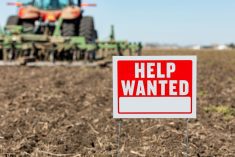Ottawa — One of Canada’s largest agri-food companies has laid out a five-point industry recovery plan for federal politicians to consider.
During a meeting Tuesday of the Commons standing committee on finance, the president of Quebec-based Sollio Co-operative Group shared plans to limit consequences of the COVID-19 pandemic on the agrifood supply chain.
Sollio employs more than 15,000 people and has three agri-food divisions, including meat packer Olymel.
President Ghislain Gervais told MPs the government needs to invest in increasing productivity by improving its automating and robotizing infrastructures, while continuing to support exporters through investments in food processing.
Read Also

U.S. grains: Soybeans rise on export optimism; corn, wheat nearly flat
Chicago | Reuters – Chicago soybean futures rose about one per cent on Tuesday on optimism about demand for U.S….
The company is also calling for the fast deployment of telecommunications infrastructure to ensure the different regions of the country remain strong.
Sollio also listed the need for supporting a “sustainable economy” which, according to its submission, involves “significant support for the digitization and performance of agriculture, as well as promoting and supporting the co-operative business model.”
Citing ongoing labour challenges, the company also requests the federal government promote front-line trades to ensure the industry has enough workers.
“Canadian government support must be well targeted and sustained to protect our supply chains,” Gervais told the committee. “Supporting us in our investments, in a context of scarce resources, means ensuring that Canada will be able to increase its food self-sufficiency, as well as better protect its capacity and its reputation as a world-class exporter.”
Gervais finished his testimony by telling the committee members the COVID-19 shock was just the latest challenge for supply chains, noting the CN strike, rail blockades and difficulties accessing the Chinese market were all recent issues.
The finance committee has met regularly to discuss the financial impacts of the pandemic since the start of April, hearing from dozens of witnesses since.
At its meeting a week earlier, Denise Allen, CEO of Food Processors of Canada, told members “the COVID-19 pandemic has placed extraordinary strain on our entire supply chain.”
She said her organization’s members have spent an approximate $1 billion in added operational expenses to mitigate the pandemic’s impact. She called for more funding to assist in operating expenses and an injection of working capital “to backstop a minimum of three to six months’ worth of food orders to offset the receivables risk to distributors and discourage changes to payment terms.”
Other groups representing the agri-food and agriculture sectors have also testified before the committee, including the Canadian Federation of Agriculture and the Canadian Cattlemen’s Association.
— D.C. Fraser reports for Glacier FarmMedia from Ottawa.
















